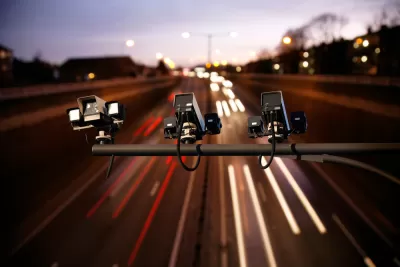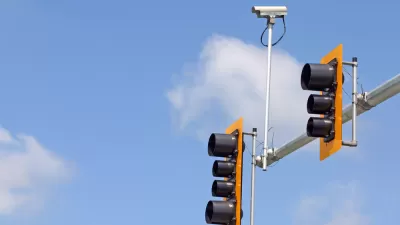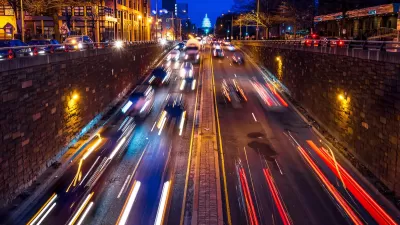City officials say an automated traffic enforcement pilot program has reduced speeding and crashes along the corridor where cameras were installed.

Local leaders in Philadelphia are calling on the state to renew legislation that would allow the city to continue its speed camera program, which the city says reduced speeding violations by 93 percent, writes Beccah Hendrickson for ABC 6. “The city also argues the cameras are making the boulevard safer. In 2019, there were 510 crashes along the road, which dropped to 360 in 2020 after the cameras were installed.”
Critics of the program say the cameras unfairly cite drivers and put a burden on low-income residents, but city leaders want to install them on more streets. The program has collected $22.8 million in fines since 2020.
Speed cameras have proven to be a divisive issue among traffic safety advocates, residents, and policymakers. While some argue that automated enforcement improves safety and reduces the need for personal interactions between drivers and law enforcement, others say they unfairly target communities of color and put undue financial burdens on residents who can become trapped in a cycle of debt. Others have pointed out that results from speed camera programs correlate with infrastructure—that is, communities that lack safe crosswalks, sidewalks, and traffic calming measures are likely to see more speeding tickets, highlighting a need for more robust and equitable investment in road safety projects.
FULL STORY: Philadelphia officials say speed camera pilot program on Roosevelt Boulevard is working

Study: Maui’s Plan to Convert Vacation Rentals to Long-Term Housing Could Cause Nearly $1 Billion Economic Loss
The plan would reduce visitor accommodation by 25,% resulting in 1,900 jobs lost.

North Texas Transit Leaders Tout Benefits of TOD for Growing Region
At a summit focused on transit-oriented development, policymakers discussed how North Texas’ expanded light rail system can serve as a tool for economic growth.

Using Old Oil and Gas Wells for Green Energy Storage
Penn State researchers have found that repurposing abandoned oil and gas wells for geothermal-assisted compressed-air energy storage can boost efficiency, reduce environmental risks, and support clean energy and job transitions.

Santa Barbara Could Build Housing on County Land
County supervisors moved forward a proposal to build workforce housing on two county-owned parcels.

San Mateo Formally Opposes Freeway Project
The city council will send a letter to Caltrans urging the agency to reconsider a plan to expand the 101 through the city of San Mateo.

A Bronx Community Fights to Have its Voice Heard
After organizing and giving input for decades, the community around the Kingsbridge Armory might actually see it redeveloped — and they want to continue to have a say in how it goes.
Urban Design for Planners 1: Software Tools
This six-course series explores essential urban design concepts using open source software and equips planners with the tools they need to participate fully in the urban design process.
Planning for Universal Design
Learn the tools for implementing Universal Design in planning regulations.
Ascent Environmental
Borough of Carlisle
Institute for Housing and Urban Development Studies (IHS)
City of Grandview
Harvard GSD Executive Education
Toledo-Lucas County Plan Commissions
Salt Lake City
NYU Wagner Graduate School of Public Service





























